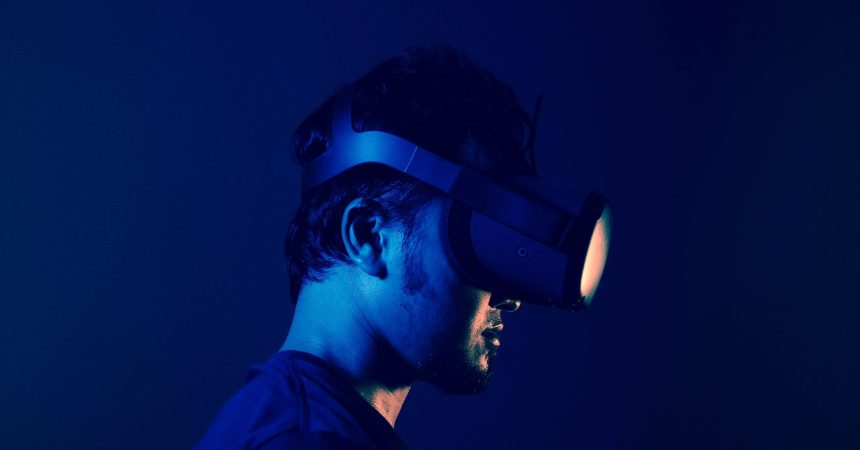Do you find your mind constantly going, chattering away, whispering an array of negative thoughts? Have you noticed that you have begun experiencing erratic lows, highs, or even both? Mental illness is a severe disease that needs expert medical treatment. When an individual begins suffering with their mental health, every aspect of their life will begin to feel dull. The consequences of a deteriorating mental state will visually show itself through:
- Your relationships with loved ones
- Productivity at work
- Outlook on life
According to the CDC, American citizens living with anxiety have completely skyrocketed to around 40% in the past two years. This equates to an average of more than 1 in 3 Americans experiencing mild to severe mental health conditions since the pandemic begins at the end of 2019.
The number of young people within the age category of 18-29 is worsening every year, with more individuals experiencing more than one mental health issue, the common ones being anxiety and depression.
As we grow up, we have most likely heard our parents or caretakers telling us to get off the video games we are constantly playing, log off our digital entertainment, and go outside to the “real world”. However, a recent new study published by Monaghest et al has suggested that VR therapy has evidence to reduce the symptoms of anxiety and depression along with the possibility of other mental health conditions. According to the study, VR or virtual reality aids individuals in learning how to manage their symptoms within a simulation. These skill sets can easily be transferred to the real world.
What is VR mental health therapy?
Mental health disorders have become all too common, with only a limited amount of individuals receiving adequate treatment for their specific conditions. With the help of virtual reality simulation, individuals can repeatedly experience several chosen situations and learn the skill sets to deal with the problem. Unlike in the real world, there are no negative consequences in a simulation; therefore, if you do not respond the first time correctly, you can try again. Individuals can be taught evidence-based psychological treatments to overcome and thrive from difficult experiences.
4 ways VR is completely transforming mental health
Technology is on the rise in the technology era, from our phones scanning our fingerprints to robots completing mundane jobs. So what exactly can we expect from VR with it comes to helping us with our mental health?
We have listed a couple of ways virtual reality will transform mental health:
1. Affordable treatments
Soon, everyone will have their VR set at home, the same way nearly all of us have smartphones attached to our hands. The price of virtual reality technology is also decreasing; self-guided therapy sessions could soon be the next big thing on the shelf. Instead of watching a “how to” video on YouTube, you will interact with a self-guided therapy session in your VR set.
Instead of finishing work and driving to your medical professional’s place of work, you will pop into your bedroom and connect your VR set. Travel time is wholly reduced, the stress of having to beat the rush hour to get to the next place is gone, and having to get yourself looking presentable means there is no need for VR.
2. Activation of all sense
Virtual reality will naturally activate more than just the unique visual sense. The technology can turn the therapy session into a full-blown experience, creating a realistic environment that further enhances exposure therapy designed specifically for your individual needs.
3. High-quality, personalised treatment
Unfortunately, the best, most effective therapies are unavailable for all of us due to cost, location, and many more factors. These issues can create a formidable wall between the individual mental health and the effective treatment that is needed for the individual to get better.
With virtual reality, experienced psychologists can make their services readily available to the broader population of people who suffer from mental health problems. Even better, virtual reality therapy will be able to provide a more natural therapy treatment compared to video consultations that we are all used to due to the pandemic. With VR, you can completely immerse yourself in realistic environments.
4. Promoting the importance of mental health
Not even a decade ago, being diagnosed or saying you were suffering from mental health was highly taboo. If an individual were seeking therapy, it would have been kept top secret due to being led to believe there was something to be ashamed or embarrassed about.
Thankfully, mental health seems widely accepted and casually spoken about without any sense of judgement from others. Mental health is now being spoken about on the news, and in podcasts, celebrities speak up about their mental health struggles. VR can help further accept taking care of yourself and your mental health.
VR allows more patients to have the time and ability to seek mental health treatment without leaving their houses.
Our final thoughts on VR
Virtual reality-enabled therapy will slowly but surely make its way into the spotlight and our homes as an accessible way to receive treatment for various mental health issues. It is vital that when an individual begins suffering with their mental health, effective and high-quality treatment plans are available for them.
Our mental health is so important; we must work on any possible scenario that ensures every single one of us has access to treatment and is welcomed with open arms.







